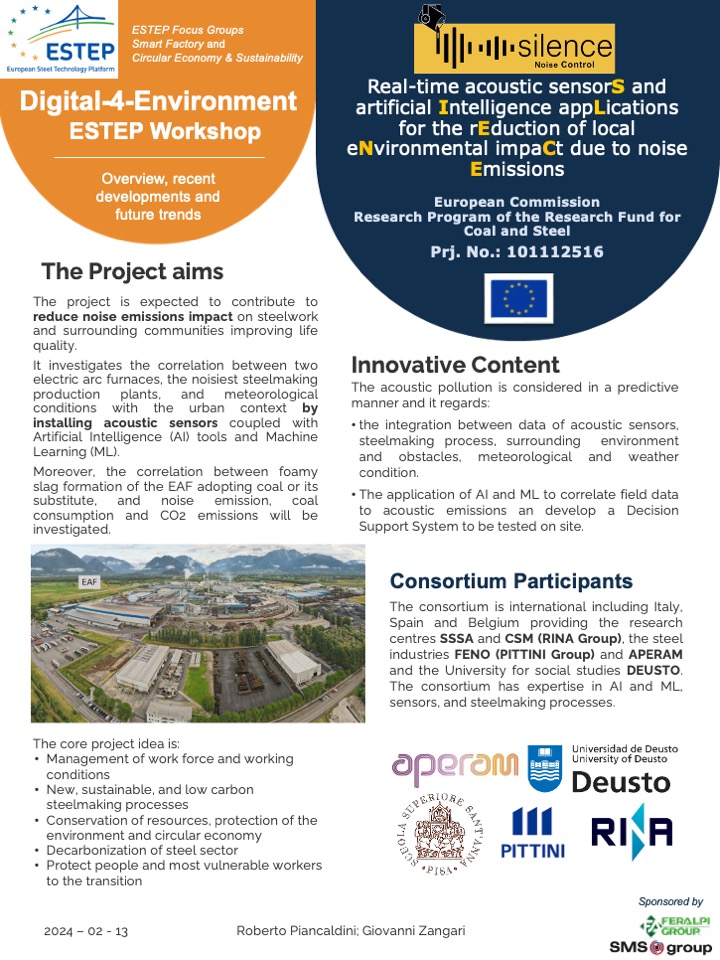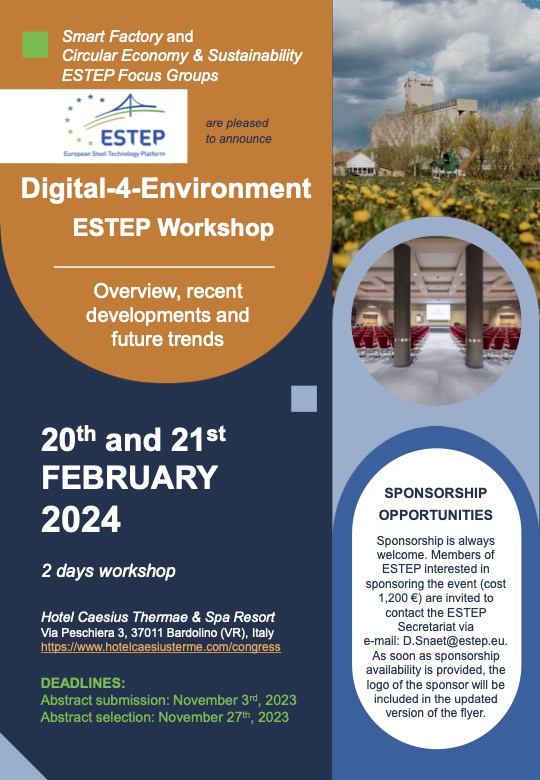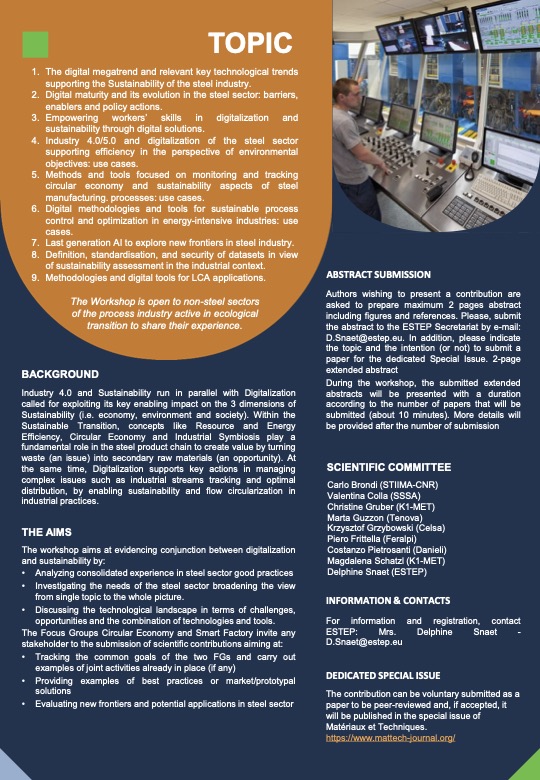
Abstract
The project aims to reduce acoustic emissions impact on steelwork and surrounding communities through the installation of real-time acoustic sensors, coupling modern process monitoring techniques with a KPI’s metric approach. Artificial Intelligence (AI) tools and Machine Learning (ML) based analyses application will assess the acoustic performance of the different processes correlating them with process data and meteorological conditions. Acoustic emissions will also be related to the use of coal (or its substitute) injection in the EAF, and to the control of foamy slag, by simultaneously reducing both noise emission and coal consumption, and therefore CO2 emissions. Moreover, strategies will be adopted for suitable training to improve operators’ acoustic sensitiveness. The SILENCE systems will be tested in two plants located in different morphological areas producing carbon and stainless steel.
Objectivies
The environmental impact of steelworks in relation to the surroundings is generally associated to the emission of dangerous substances which are responsible for environment pollution. Nonetheless, one of the major causes of difficult coexistence between steel plants and local surroundings is the noise due to acoustic emissions because of the impact on people daily life.
The steel scrap handling and melting by the electric arc in the furnace of the widely used EAF, is the most important noise source in the steelworks, and the use of green alternative fuels other than coal additions, to enable the transition toward a green and sustainable steelmaking, can even increase the level of noise in EAF.
The overall objective of the SILENCE project is the control and reduction of steel plants noise, a priority in the agenda of the European steel sector, closely linked to the social sustainability of the steel production cycles, aimed to improve life quality of people living in the surroundings as well as working condition inside the plants, without affecting, or even improving production performance.


Innovative content
The innovative aspect of the proposal is that the acoustic pollution caused by steel plants is considered in a predictive manner. The impact of noise on surrounding communities is treated in an integrated way and using modern modelling and ML tools to improve co-existence between the steelworks and surrounding communities. The proposal regards:
- an integrated approach to improve acoustic emissions monitoring coupling newly installed sensors and available information from process and surrounding environment. Robust sensors will be developed able to store and transmit acoustic data to be integrated with process parameters and meteorological information.
- an extensive application of AI and ML-based tools and techniques for data analytics which are applied for the first time to acoustic emissions monitoring and mitigation in the steel field, thanks to the acquisition of a huge volume of data. Because noise perception of workers inside the plant and on population outside can be significantly affected by weather conditions and obstacles that hinders the development of proper countermeasures to significantly reduce the acoustic impact on. AI and ML analyze the causes of acoustic emissions, enable better process monitoring and control, elaborating strategies for the reduction and prevention of acoustic noise,
- the development of decision support concepts and tools to be tested on site and dedicated to plant operators and managers ad suitably designed to allow easy and friendly exploitation of the ML-based tools at a practical level.
The methodologies and tools developed are demonstrated in two industrial use cases, both equipped with an electric arc furnace and immersed in an urban context with different production processes. These plants are selected to be the noisiest in steelmaking production, and to be located near urban contexts.
The core project idea is:
- Management of work force and working conditions (RFCS objective)
- New, sustainable, and low carbon steelmaking processes (RFCS objective)
- Conservation of resources, protection of the environment and circular economy (RFCS objective)
- Decarbonisation and modernisation of steel sector (Green Deal).
- Protect people and workers most vulnerable to the transition (Green Deal)
Consortium
The consortium is international (3 nations: Italy, Spain and Belgium are represented) and includes 2 Research Centres (SSSA and CSM which is also the coordinator), 2 Steel Industries (FENO and APERAM) and 1 University for social studies (DEUSTO). The consortium has expertise in AI and ML (hardware and software), sensors, software development and steelmaking processes. All of them participated to ended or running EU funded projects.
